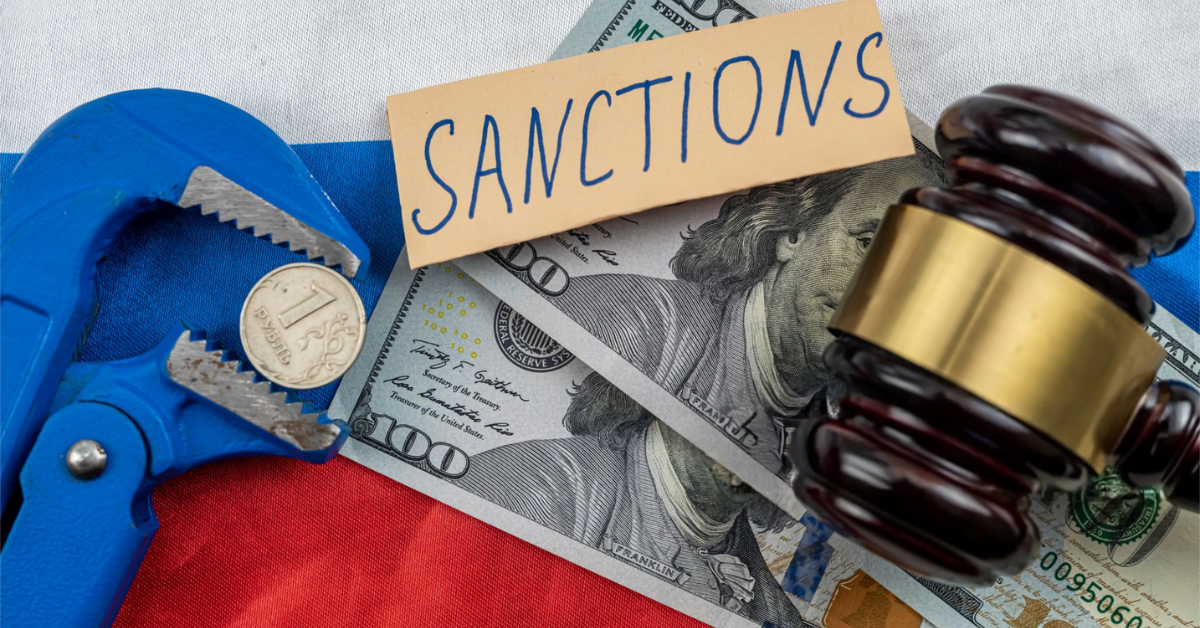Weekly Roundup: OFAC, DOJ Levy Major Penalties for Sanctions Shortcomings
As the global crusade on financial crime continues worldwide, several significant developments in anti-money laundering (AML) and counter terrorism financing (CFT) took place domestically last week, underscoring enforcement efforts taken by the U.S. government as part of its intensified focus on sanctions compliance and illicit financial activities, particularly involving foreign entities seeking to exploit vulnerabilities for personal gain. Two major cases highlight the consequences for non-compliance in the financial sector, with two very distinct aspects of the financial sector in the crossfire within these respective cases.
OFAC Imposes $216 Million Penalty on Venture Capital Firm
On June 12, 2025, the U.S. Treasury Department’s Office of Foreign Assets Control (OFAC) announced a historic $216 million fine against GVA Capital, a San Francisco-based early-stage venture capital firm registered in the Cayman Islands. The penalty stems from GVA Capital’s dealings with a knowingly blacklisted billionaire, Russian oligarch Suleiman Kerimov, between April 2018 and May 2021. Despite Kerimov’s designation by OFAC in April of 2018 linked to his ties to the Kremlin, GVA Capital continued to facilitate his investments in an unidentified U.S. company through his nephew, who acted as his proxy. During this time, GVA Capital began utilized a complex and elaborate web of shell companies to distribute Kerimov’s funds throughout the U.S., enabling Kerimov to not only maintain his access to the U.S. financial system, but launder the proceeds of illicit financial activity in the process.
GVA Capital was founded in 2011 as the U.S. investment arm of Moscow-based Global Venture Alliance. The firm’s relationship with Kerimov began in 2016, predating his blacklisting, approaching him regarding investment in the U.S.-based company. By April 2021, Kerimov’s shares had skyrocketed from around $20 million to over $436 million in value.2 OFAC’s investigation also cited GVA Capital’s failure to comply with a subpoena which further aggravated the violation and contributed to the staunch penalty.
The agency emphasized that this enforcement action serves as a warning to non-bank financial institutions, including venture capital firms and investment advisers, to implement and maintain robust, risk-based sanctions compliance controls – specifically when dealing with overseas agents. In the case of GVA Capital, their failure to act upon sanctions updates that implicated their embattled investor appears to come down to nothing more than hubris – with the firm seeking to keep the gravy train rolling in spite of knowing that Kerimov was under blocked status. This case marks one of the largest penalties ever issued by OFAC against a venture capital entity, and further highlights the critical need for firms to monitor the most up-to-date global sanctions and blacklists for compliance with current regulatory standards, specifically when dealing in high-risk investments.
DOJ Charges Crypto Executive with Laundering $530 Million
In another recent and high-profile case, the Department of Justice (DOJ) charged Lurii Gugnin, founder of Florida-based cryptocurrency company Evita, with 22 counts related to laundering over $530 million on behalf of sanctioned Russian banks through various U.S. financial institutions and crypto exchanges. Gugnin’s involvement stems directly from the multiple key roles he plays for the company, serving as Evita’s president, compliance officer, and treasurer, overseeing Evita Investments and Evita Pay – the two primary subsets of the company through which the laundering activities were carried out. The DOJ alleges that Gugnin facilitated illicit transactions through U.S. banks and cryptocurrency exchanges, bypassing mandatory AML compliance processes designed to prevent fraud and money laundering. Investigatory authorities allege Gugnin facilitated countless transactions with sanctioned Russian banks while actively attempting to disguise the sources of these funds to assist his Russian clients with laundering funds, as well as potentially obtaining sensitive U.S. technologies, including export-controlled servers and parts for Russia’s nuclear agency Rosatom.3
All told, Gugnin has been charged with wire and bank fraud, conspiracy to defraud the United States, violation of the International Emergency Economic Powers Act (IEEPA), operating an unlicensed money transmitting business, failing to implement an effective anti-money laundering compliance program, failing to file suspicious activity reports, money laundering, and related conspiracy charges.1 The charges are the latest in a string of enforcement actions taken against cryptocurrency exchanges for violations of money transmitting laws and other improprieties, implicating major firms such as Binance and FTX amongst others over recent years. These actions, long called for by financial crime pundits, reflect growing scrutiny over the sector due to lax and largely uncoordinated regulations governing the crypto space which have enabled sanctioned entities to exploit digital platforms and dirty money to infiltrate the global financial system. The DOJ’s efforts in this regard are effectively setting the tempo for crypto-firms with respect to meeting their own basic obligation to adhere to the current AML standards harboring their counterparts at traditional financial institutions. As the case unfolds, it may further shape regulatory expectations for the crypto sector, which continues to grapple with its role in global financial crime.
Broader Implications for AML Compliance
The continued crackdown on sanctions evasion and money laundering is expected to continue for the foreseeable future, particularly as geopolitical tensions rise in both Russia and the Middle East. The latest OFAC and DOJ actions demonstrate that no financial institution – whether a venture capital firm or a cryptocurrency company – is exempt from compliance obligations. The significant financial penalties and criminal charges serve as a reminder that regulators are prioritizing enforcement to deter illicit financial flows, with regulators believing their efforts in this regard are already paying dividends.
Citations
- “Founder of Cryptocurrency Payment Company Charged with Evading Sanctions and Export Controls, Defrauding Financial Institutions, and Violating the Bank Secrecy Act.” | United States Department of Justice, Office of Public Affairs | 10 June 2025.
- “OFAC Discloses Massive Penalty Against Venture Capital Firm.” ACAMS Money Laundering, 12 June 2025.
3. Ramesh, Rashmi. “Cryptohack Roundup: Evita Founder Charged in $530M Case.” Government Information Security, 12 June 2025.

